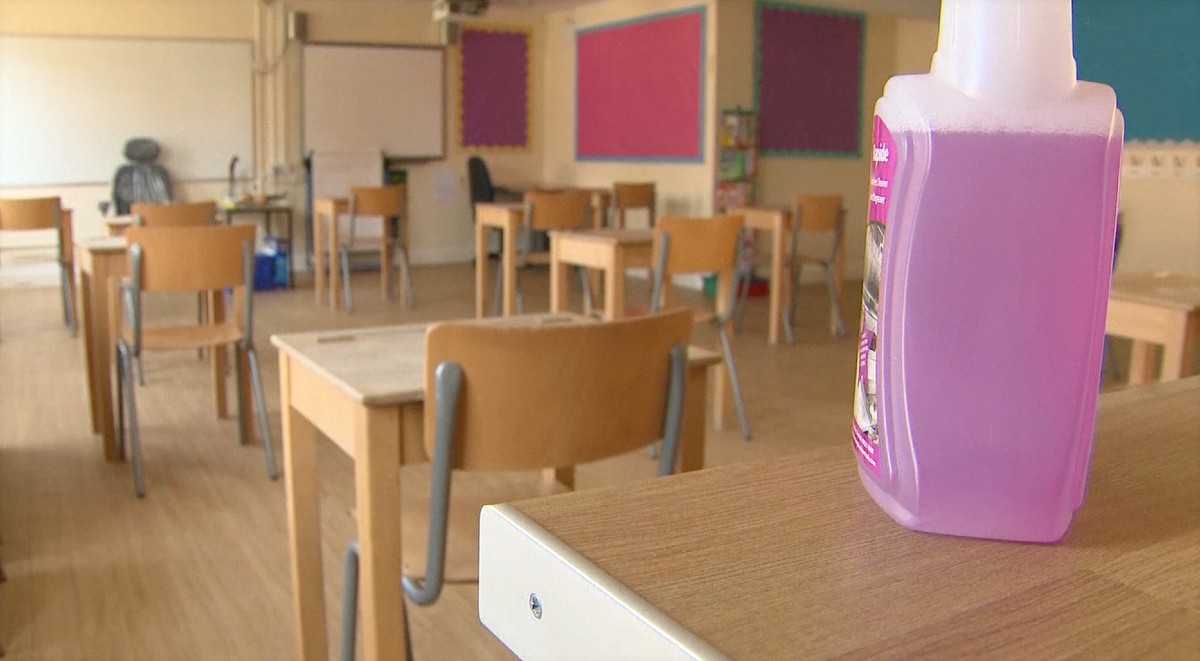03:01

Headteachers in England are taking legal action against the British government's Department of Education for planning to re-open schools.
With COVID-19 infections surging, teachers' unions in England want the British government to keep all schools closed for another two weeks.
This week the government told schools in nine London boroughs and the City of London that their primary schools should re-open. It then changed policy and decided they should remain closed.
The closure of secondary schools for another two weeks had already been announced.
The stage looks set for a standoff between the government and teachers this week.

CLICK: REMEMBER THESE? OUR TOP STORIES OF 2020
Meanwhile the UK has reported more than 50,000 new cases of COVID-19 per day for the past four days.
This second wave of the highly infection B1.1.7 variant has left hospitals in London and south-east England in crisis. London's St George's Hospital has almost doubled its number of intensive care beds from 66 to 155.
"During the first COVID-19 wave we were under a massive amount of pressure, and we are approaching that now," says Rafik Bedair, a doctor at St George's. "We expect that over the next two to three weeks, we are likely to exceed the numbers that we were looking after in the first COVID-19 wave.
"So it's been an unprecedented year for us with two peaks in the levels of infection and the number of intensive care patients."
R-numbers and vaccine programs
The latest study from Imperial College in London has found the new COVID-19 variant increases the R-number (reproduction rate) of the virus by between 0.4 and 0.7. This suggests the November lockdown in large parts of England failed to reduce the R-number – instead, it increased.
The R-number is now estimated to be between 1.1 and 1.3, which means the number of cases is growing. It's an alarming development for frontline medical staff like Bedair.
"There are a lot of patients in hospital who are not COVID-19 patients, and there are also lots of COVID-19 patients in regular wards who don't need intensive care," he says. "That's why the wards are full."
To try to reduce the pressure, the government is preparing to open its Nightingale field hospital in east London's Excel exhibition center. Seven Nightingale hospitals were set up across England during the first wave, but they've mostly sat empty.
England's Royal College of Nursing says there's barely enough staff for existing hospitals, without also trying to staff overflow hospitals.

UK Health Secretary Matt Hancock delivers a speech at the April opening of the Nightingale hospital at London's Excel center. /Stefan Rousseau/Pool/AP
UK Health Secretary Matt Hancock delivers a speech at the April opening of the Nightingale hospital at London's Excel center. /Stefan Rousseau/Pool/AP
"It's been a difficult year for our staff looking after this number of patients," said Bedair. "A lot of our colleagues are extremely pressured and stressed and have not had any time to wind down and just recharge their batteries."
The UK has also decided to change its vaccination program. It will give one dose to as many people as possible and then a second dose up to three months later as more vaccine becomes available.
British health officials say that means people can be vaccinated even if immunity is slightly lower. Government guidelines also say if the same type of vaccine is not available for the second jab, it's "reasonable" to use another type.
With the UK's vaccine program changing, it's clear the government is scrambling to get ahead of the new COVID-19 variant before the National Health Service is overwhelmed.

